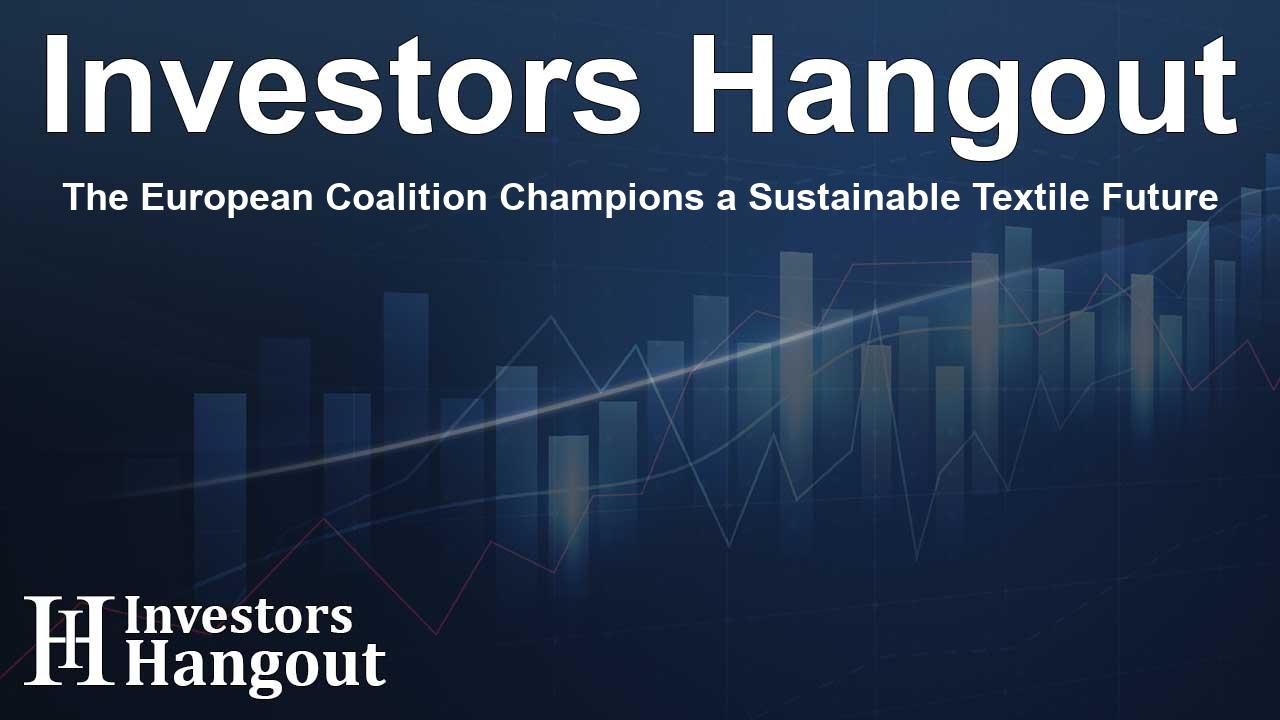The European Coalition Champions a Sustainable Textile Future

The European Coalition Champions a Sustainable Textile Future
PARIS — A groundbreaking initiative is underway as a coalition of textile companies launches a compelling manifesto aimed at establishing a fully circular textile economy. The European Circular Textile Coalition, including key players like Reju, advocates for bold actions to transform the massive amounts of textile waste generated in Europe into a sustainable resource. The coalition's call to action emphasizes the urgent need for the European Union to focus on changing the narrative surrounding post-consumer textile waste.
Each year, a staggering 12.6 million tonnes of textile waste are created in Europe, with most ending up in landfills or incinerators rather than being recycled. Alarmingly, only 1% of this waste is recycled into new garments, and the coalition believes this statistic is no longer acceptable.
Understanding the Circular Economy
The coalition aims to redefine how we think about textiles by promoting a circular economy—one in which life cycles are extended through recycling and reuse, rather than traditional linear processes that often lead to waste. "We refuse to accept textile waste as an inevitability; we view it as a solvable challenge for our generation," the manifesto powerfully expresses.
The coalition's leaders stress that in order to match regulations with environmental and economic needs, significant investment in recycling and innovative manufacturing systems is essential. "Without system readiness, even the most forward-thinking regulations risk falling short," the coalition highlights, emphasizing the need for comprehensive support and collaboration across the industry.
Key Pillars for Change
The manifesto outlines three crucial policy pillars essential for driving change:
- Strengthen the Textile Supply Chain: The coalition advocates for bringing textile production back to Europe, ensuring it adheres to high environmental and labor standards.
- Focus on Quality Recycling: It is crucial to prioritize high-quality textile-to-textile recycling, making efforts to ensure post-consumer textile waste becomes the primary input for creating new fabrics.
- Mandate Recycled Content: Establishing mandatory targets for recycled materials in textiles is necessary, with ambitious yet realistic goals phased in over time.
Reju’s CEO, Patrik Frisk, stated, "Reju is a system change company, and we firmly believe that collaboration is the key to transformation. This coalition is vital for our industry to unite and collectively work towards meaningful change. We invite more businesses to join us in this mission." The coalition emphasizes that voluntary measures have fallen short, arguing for binding standards that will drive greater demand for recycled materials.
Engaging Policymakers and the Textile Community
To further its mission, the coalition is set to embark on an advocacy tour engaging with policymakers and seeking support from various stakeholders within the textile value chain. Their message is clear: now is the time to act. As they put it, "When a world without waste is possible, we cannot afford to wait!" The call for action resonates deeply within the industry, urging everyone involved to take part in necessary changes.
About the Coalition and Reju
The European Circular Textile Coalition comprises various businesses across the textile landscape, including Reju, Resortecs, COLEO, Tissage de Charlieu, Synergies TLC, and others dedicated to driving a sustainable future.
Reju, in particular, focuses on developing innovative solutions for regenerating polyester textiles and tackling post-consumer PET waste. With backing from Technip Energies and utilizing technology from IBM Research, Reju aspires to create a circular textile recycling system that recirculates materials efficiently.
Frequently Asked Questions
What is the main goal of the European Circular Textile Coalition?
The coalition aims to establish a fully circular textile economy, reducing waste and increasing recycling efforts within the industry.
How much textile waste is generated in Europe each year?
Europe generates approximately 12.6 million tonnes of textile waste annually.
What actions is the coalition promoting to address textile waste?
The coalition advocates for policy changes, including supporting recycling initiatives, mandating recycled content in textiles, and strengthening the supply chain.
Who are some key members of the European Circular Textile Coalition?
Key members include Reju, Resortecs, COLEO, and various other businesses across the textile value chain.
How can other companies get involved in this initiative?
Companies are encouraged to join the coalition and participate in advocacy efforts aimed at transforming the textile industry towards sustainability.
About The Author
Contact Ryan Hughes privately here. Or send an email with ATTN: Ryan Hughes as the subject to contact@investorshangout.com.
About Investors Hangout
Investors Hangout is a leading online stock forum for financial discussion and learning, offering a wide range of free tools and resources. It draws in traders of all levels, who exchange market knowledge, investigate trading tactics, and keep an eye on industry developments in real time. Featuring financial articles, stock message boards, quotes, charts, company profiles, and live news updates. Through cooperative learning and a wealth of informational resources, it helps users from novices creating their first portfolios to experts honing their techniques. Join Investors Hangout today: https://investorshangout.com/
The content of this article is based on factual, publicly available information and does not represent legal, financial, or investment advice. Investors Hangout does not offer financial advice, and the author is not a licensed financial advisor. Consult a qualified advisor before making any financial or investment decisions based on this article. This article should not be considered advice to purchase, sell, or hold any securities or other investments. If any of the material provided here is inaccurate, please contact us for corrections.
